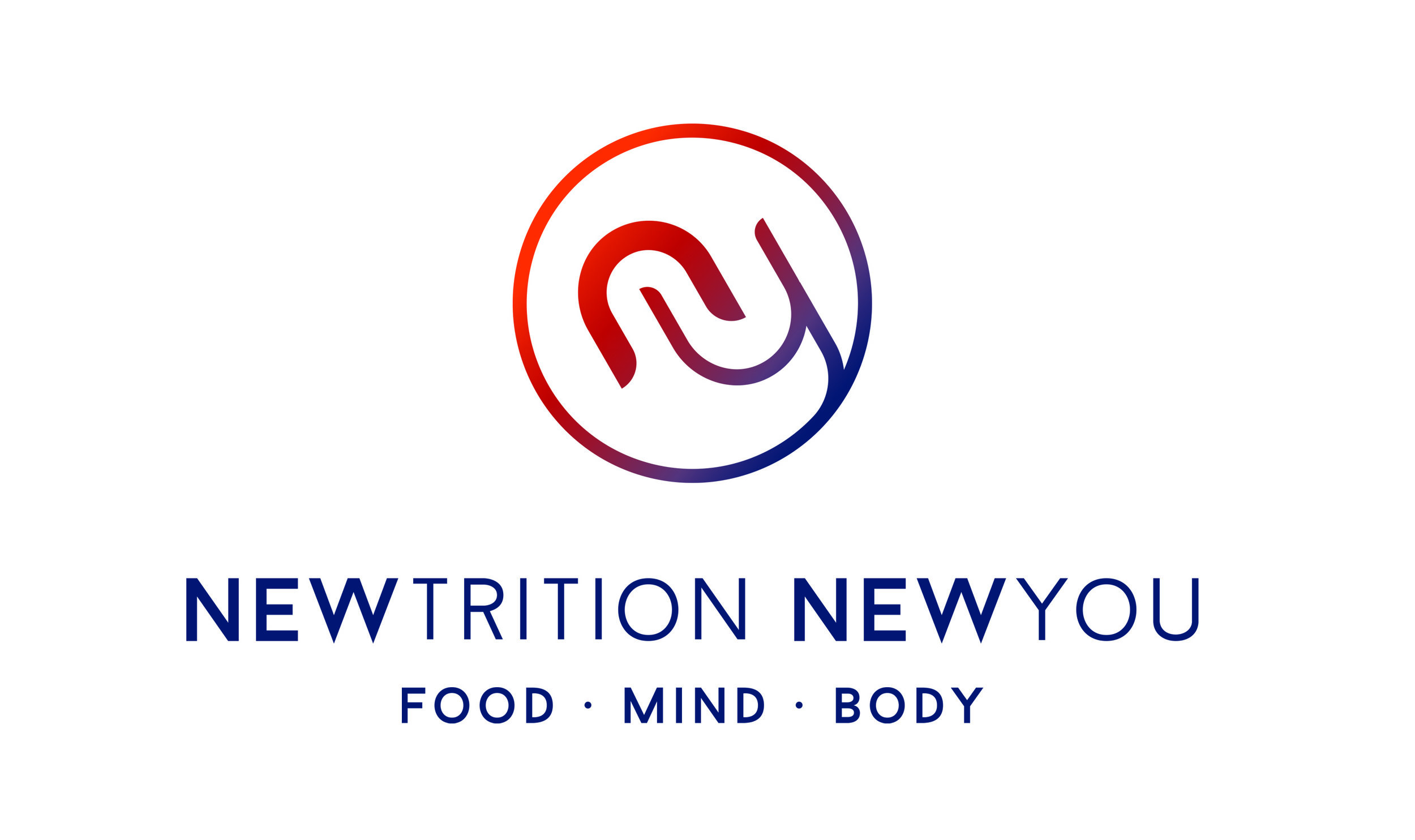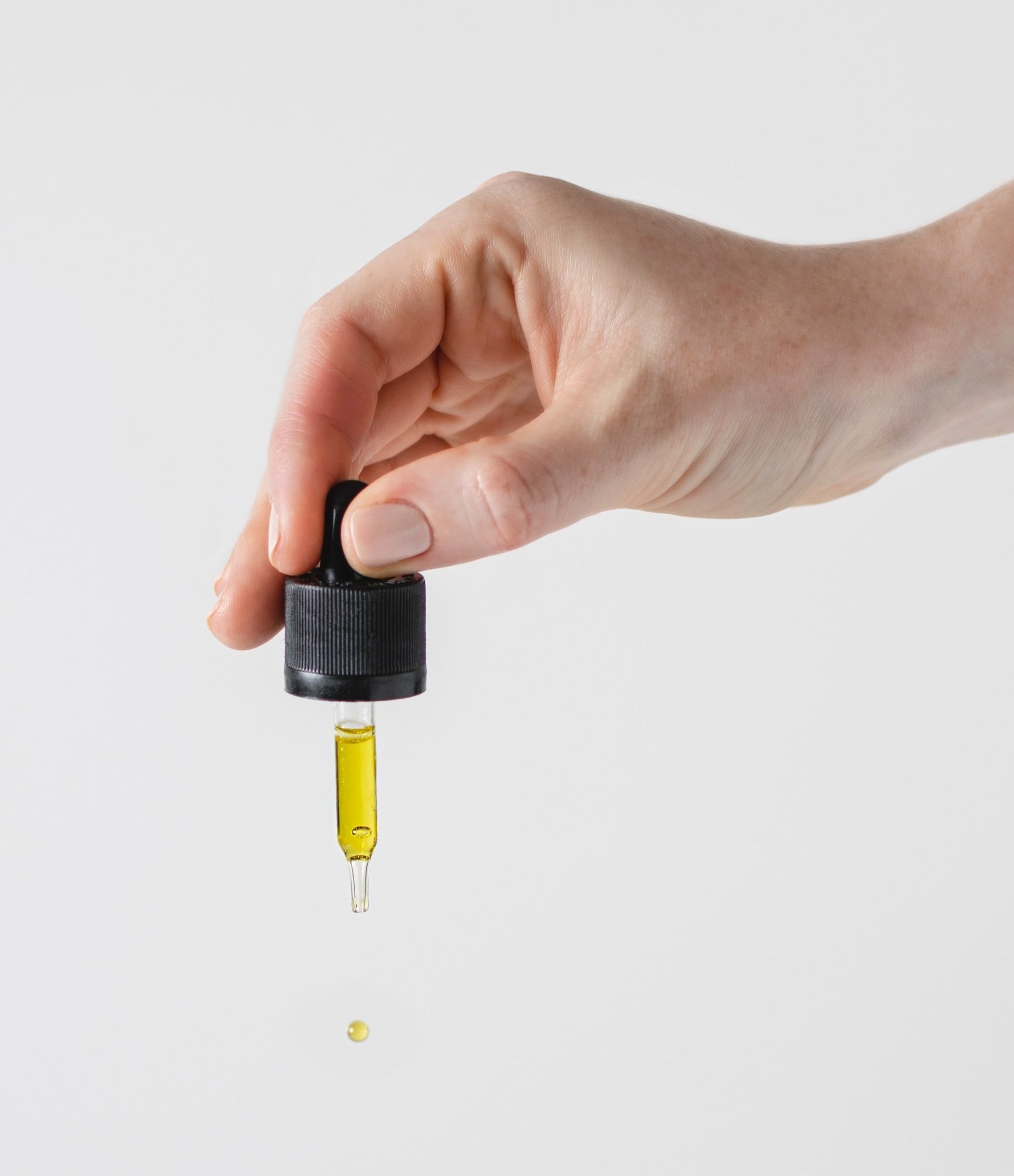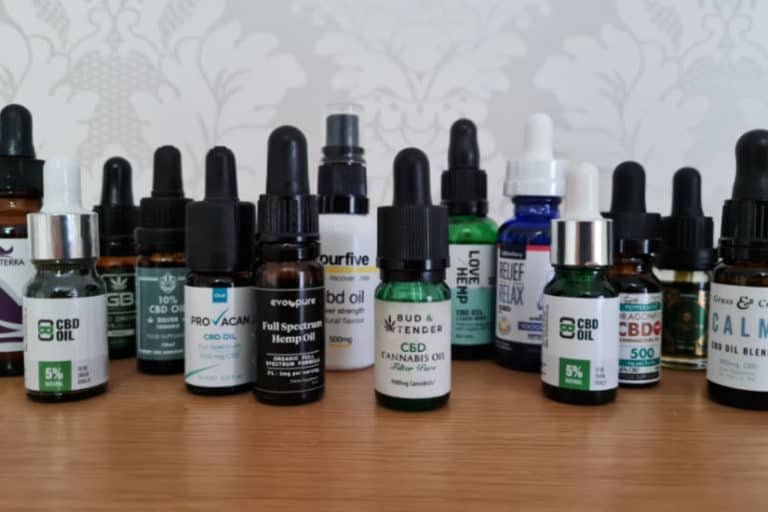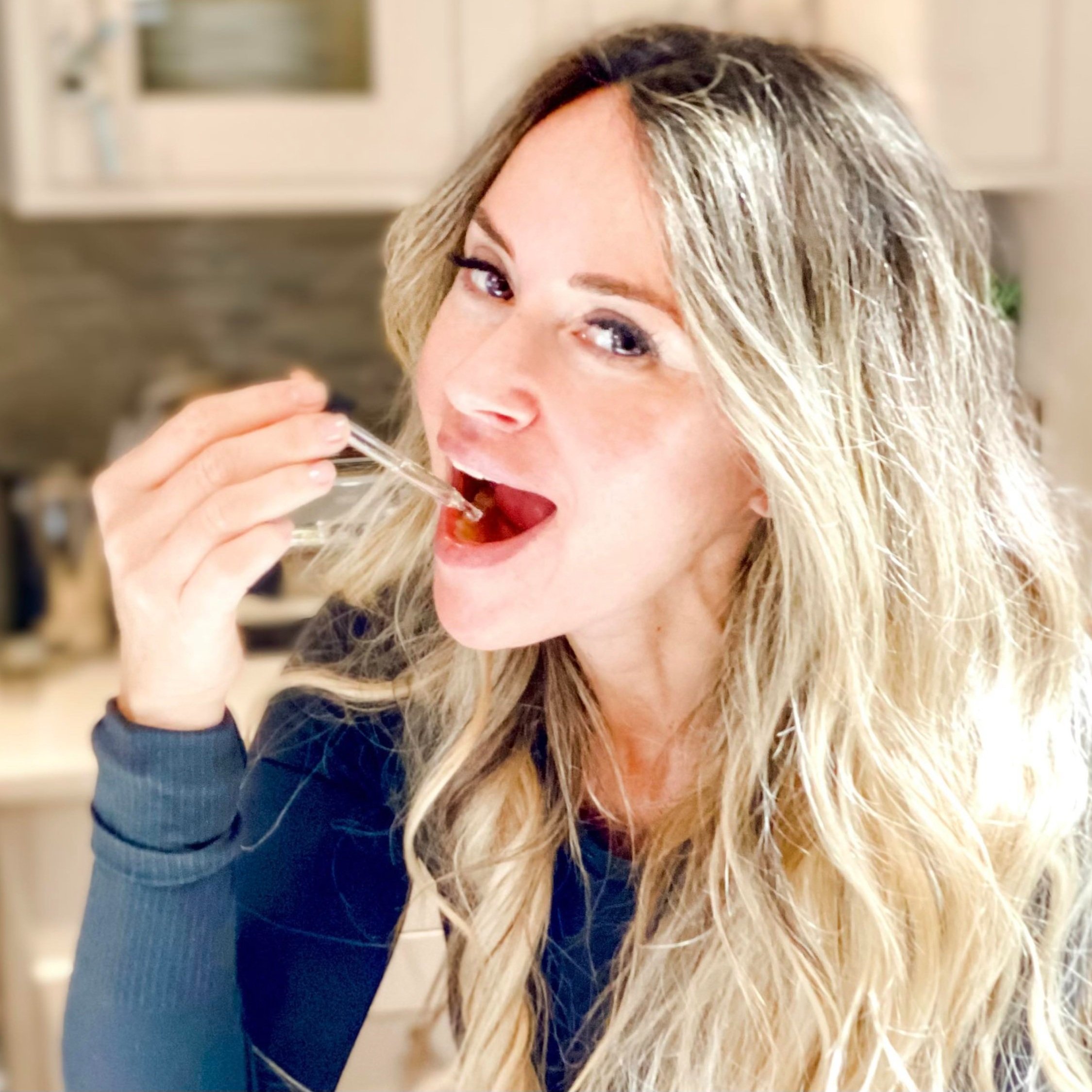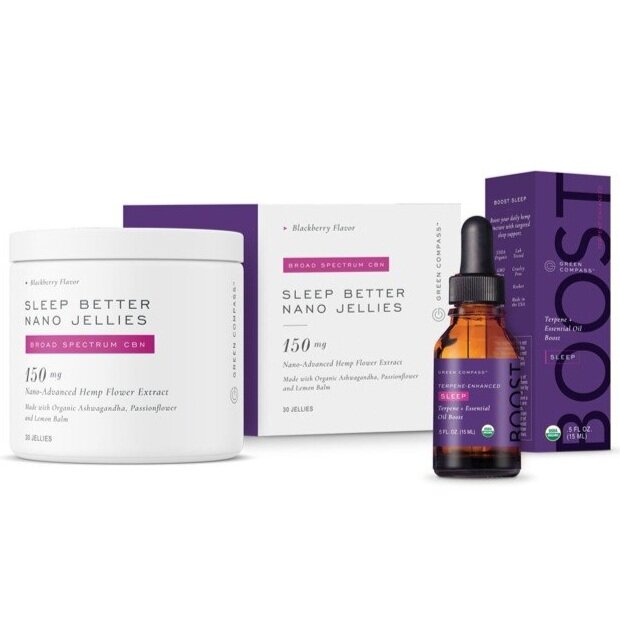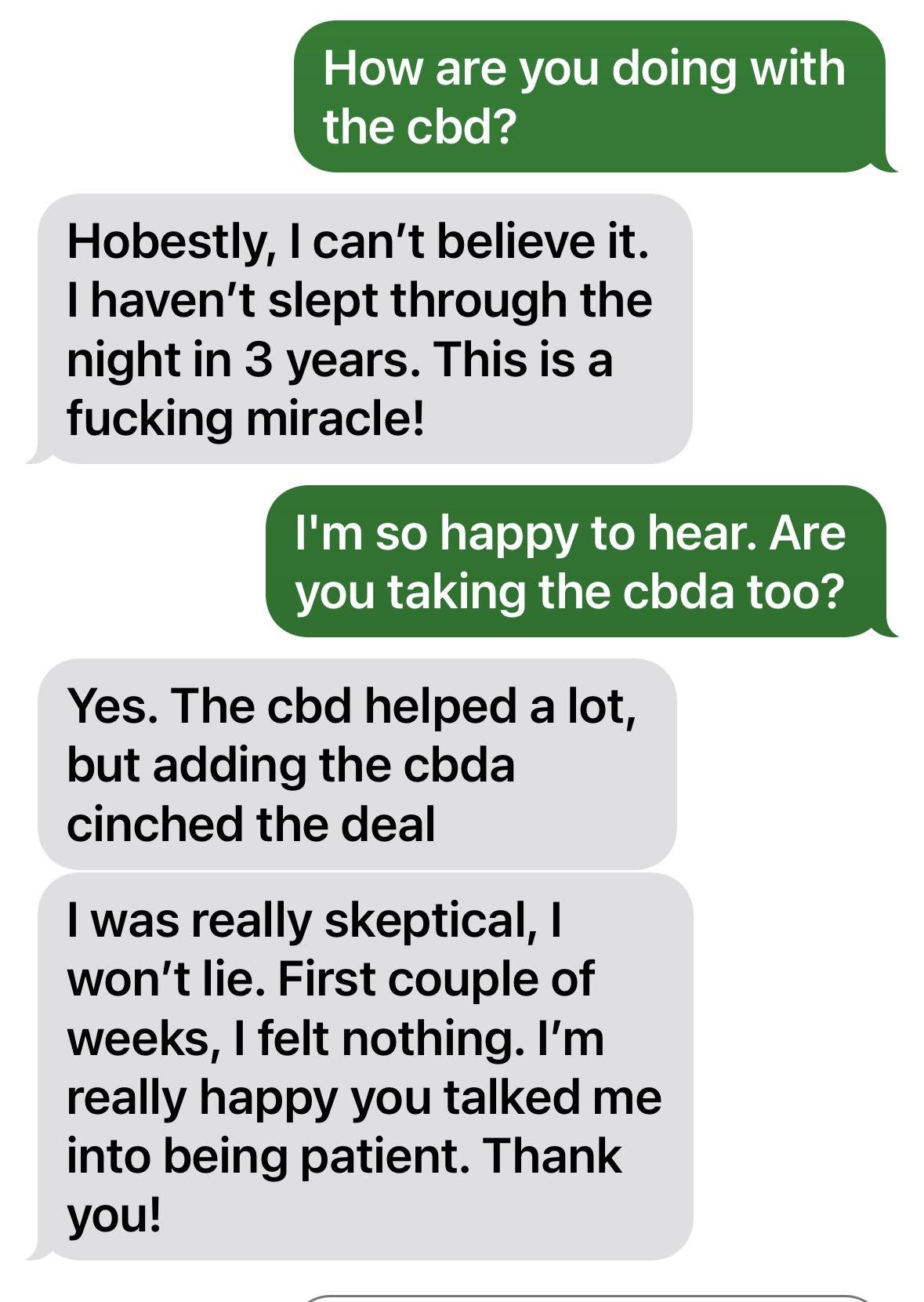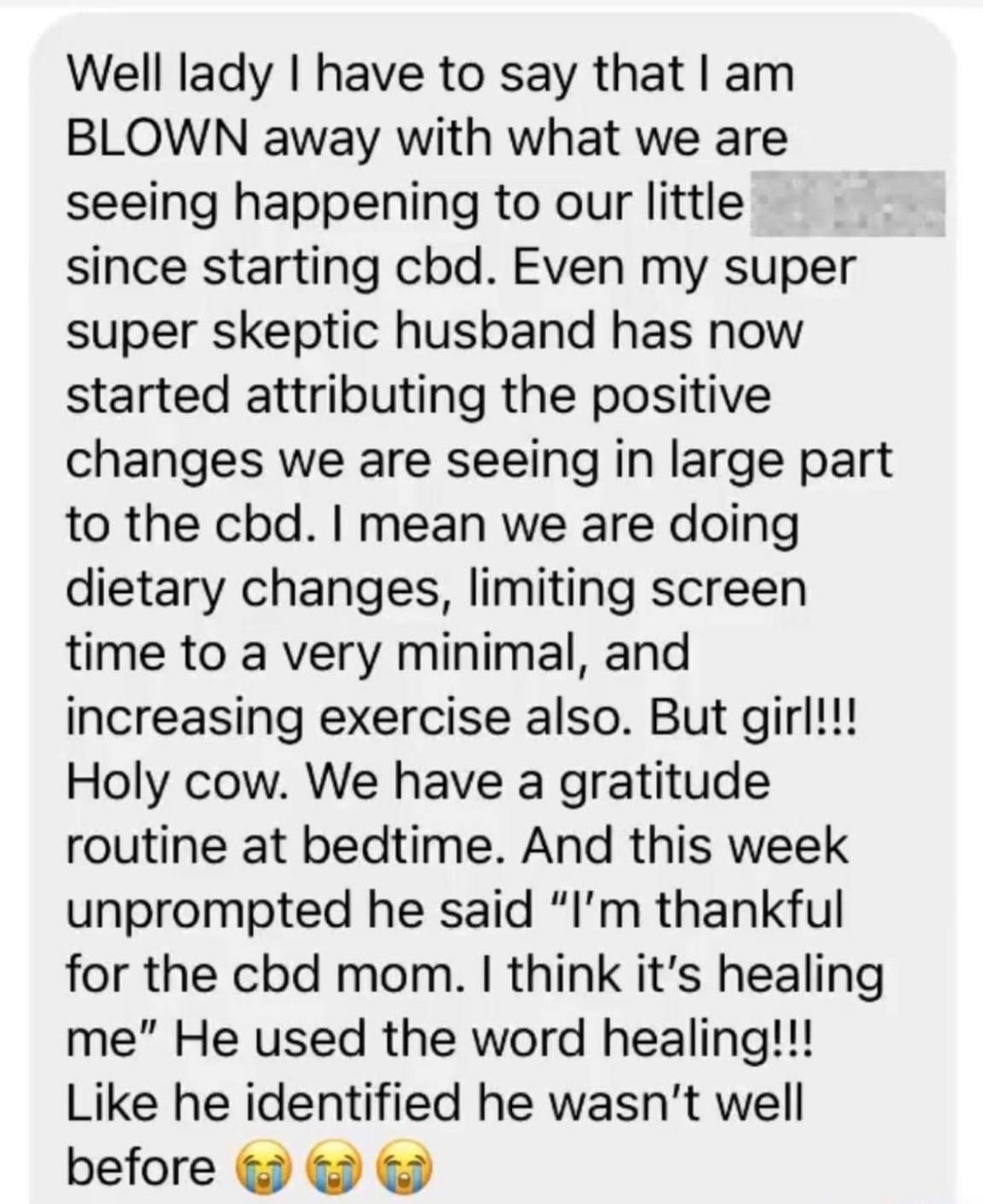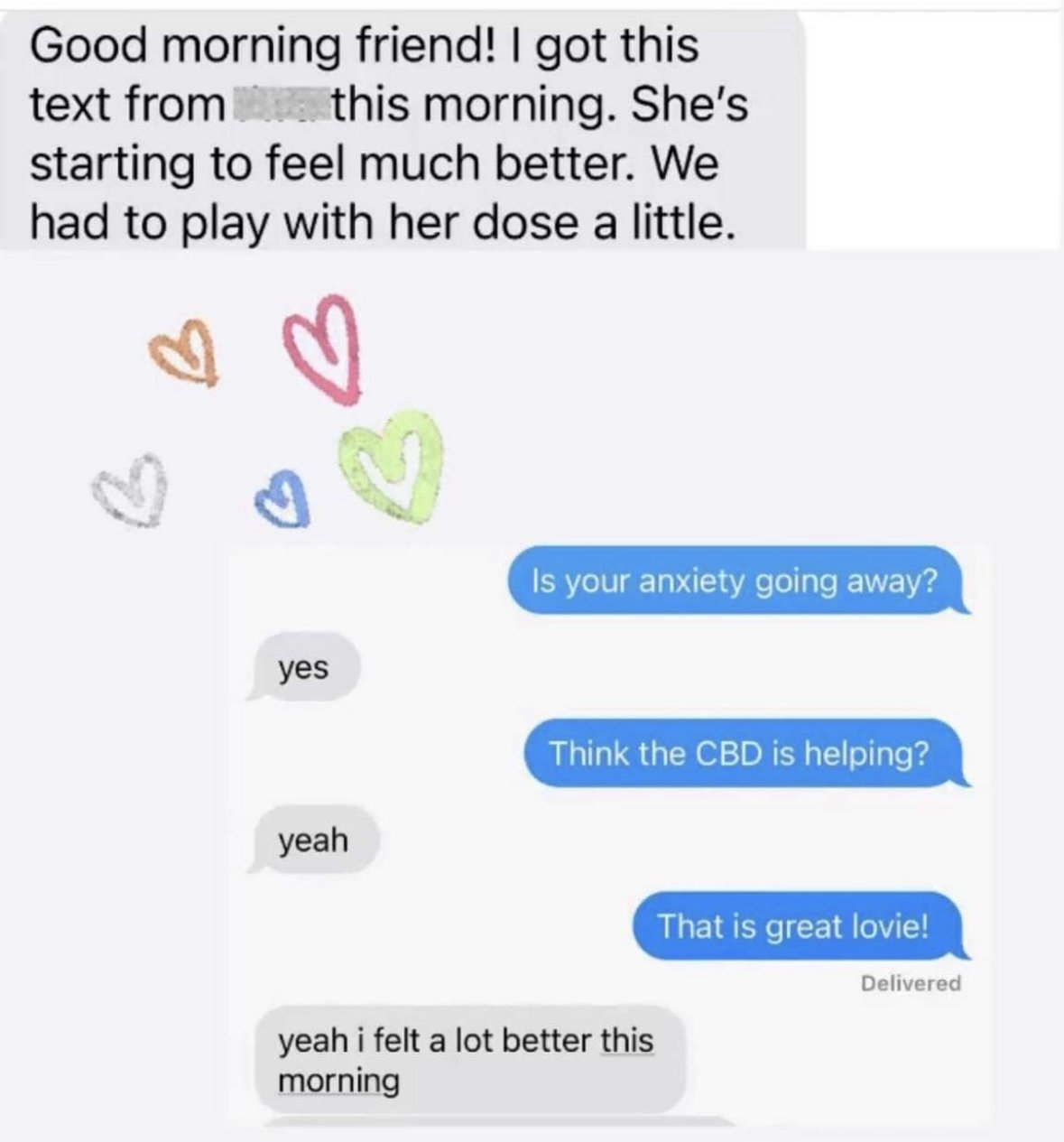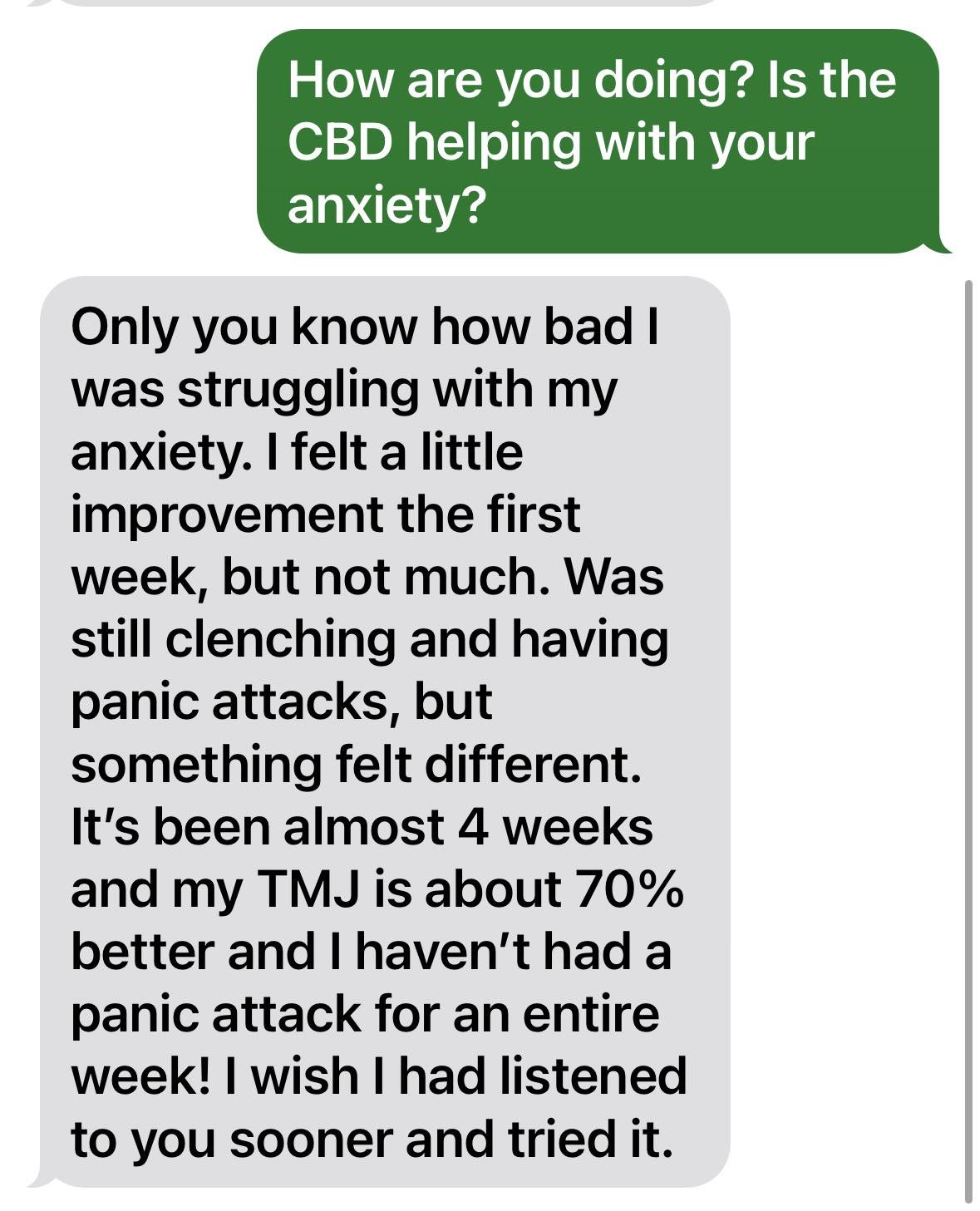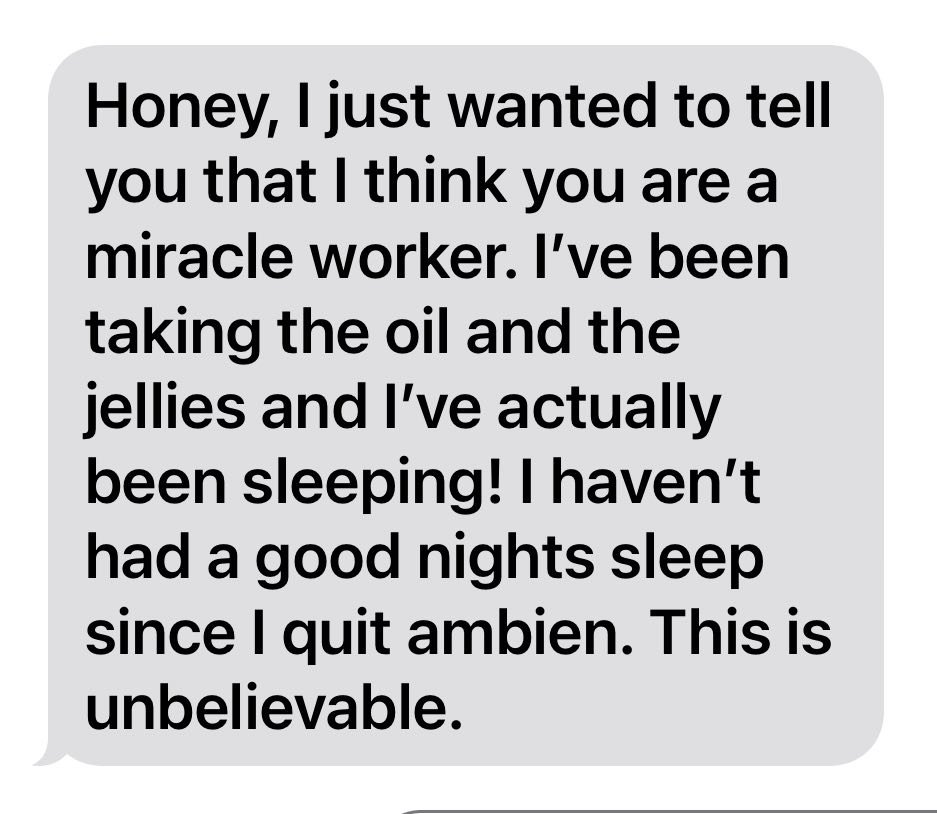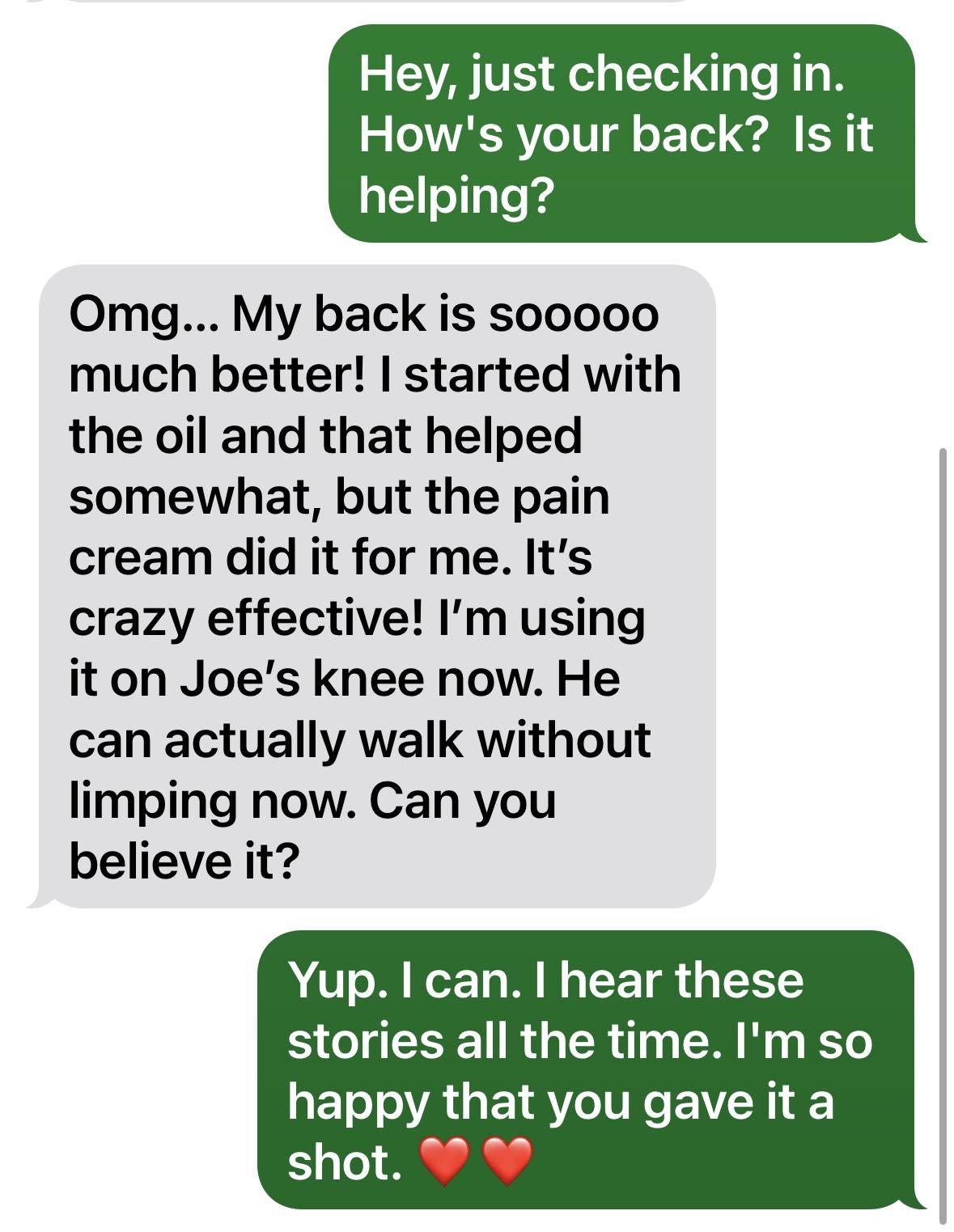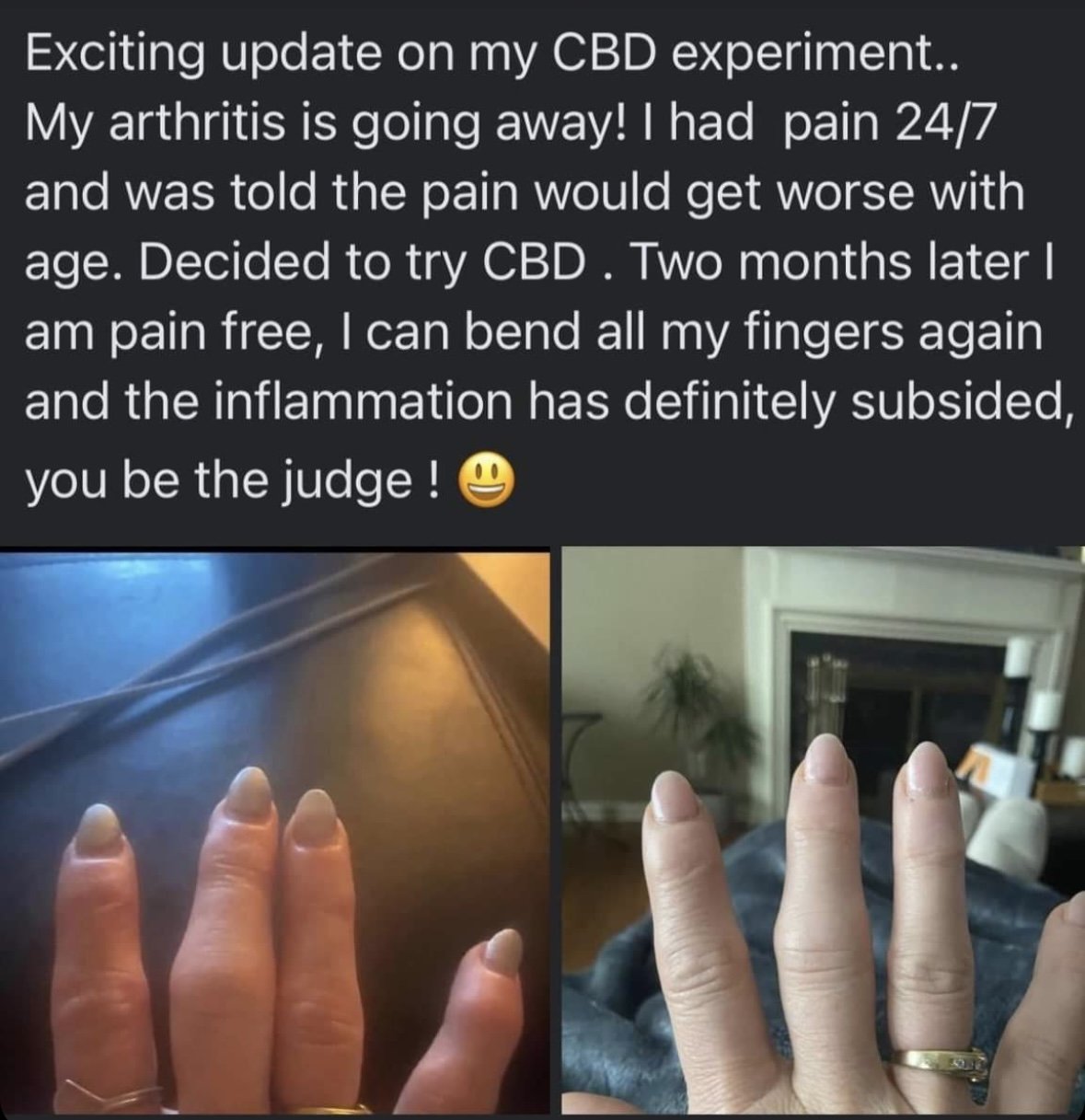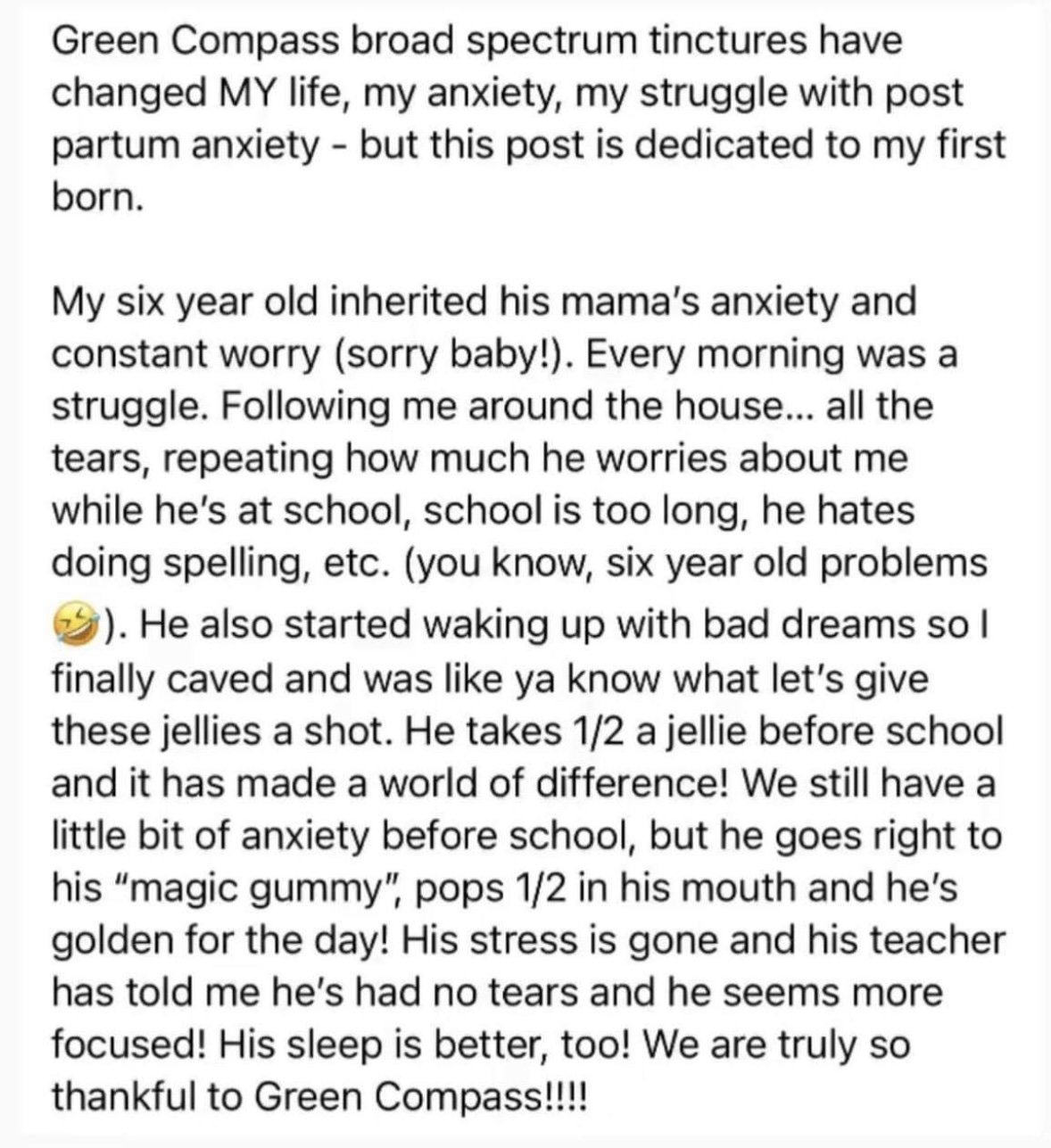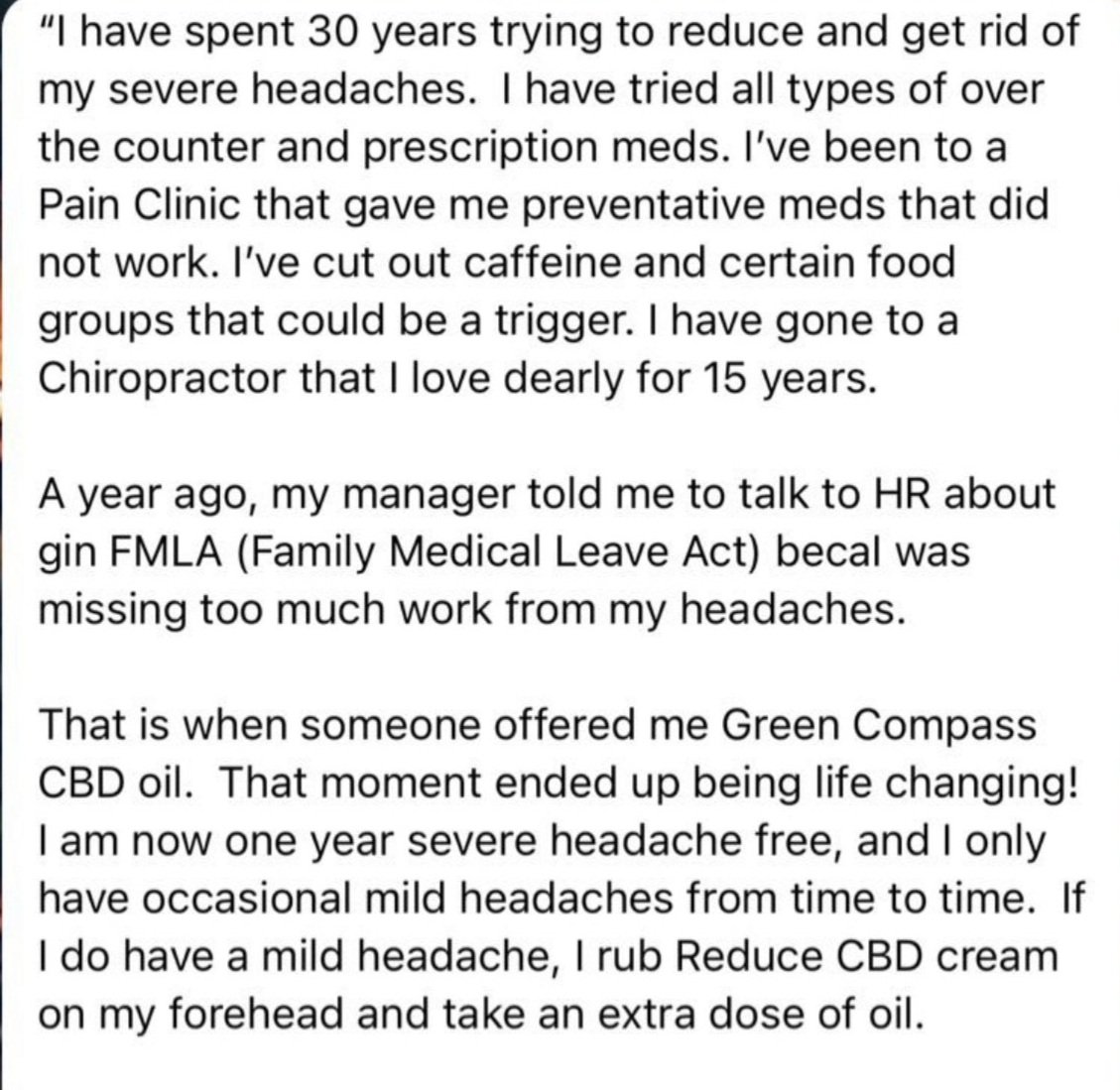The ABCs of CBD: All Your Questions Answered
Unless you’ve been living under a rock, you’ve probably heard of CBD. As I write this, it is one of the fastest growing industries in the world, projected to reach over $47 billion in 2028 (up from less than $5 billion in 2021). Yet most people still don’t know very much about this “magical” elixir (even many of those who have tried it), and the most common objections are:
I don’t want it to get me high
I’m afraid it will show up on my drug test
I’m not sure what it should be doing for me
I’ve tried it and it didn’t work
So let’s break it down and address some of these issues and get a better understanding of what CBD is (and what it’s not), who is it best for, what health benefits it can provide, how to use it, and most importantly, what you should look for when buying CBD.
BACKGROUND
I’ve been researching CBD for a some time, but what’s kept me from trying or recommending it to my clients was that I couldn’t find a product that was clean enough for me. Finally after two years of searching, I found a brand I can get behind and started out by being my own test monkey.
What did I need help with? Like many of you, stress and sleep!
I’ve always struggled with sleep. When I was younger I couldn’t fall asleep, and now, as I’m getting older, I can’t stay asleep. And my stress? Well, I’m one of those people who is always very calm regardless of what happens. But stress has a way of manifesting in ways that you may not expect or be able to control. In my case, I was clenching my jaw and grinding my teeth so hard at night that I could barely open my mouth in the morning.
I’ve never been open to taking prescription drugs, but when it came to my sleep issues, I exhausted my own tool kit—different supplements, meditation, box breathing—you name it, I tried it. Sometimes things helped temporarily, but then I was back where I started. So when I found the holy grail of CBD that I’ve been searching for, I was excited to give it a try, praying it would work.
I started out with 750mg in the mornings and a sleep boost before bed… and after about 2-3 weeks, I started sleeping better. I upgraded to 1000mg the following month, added CBDA and it was magic! I started sleeping through the night. I felt a zen-like sense of calm during the day (even when I had reason to throw things) and my teeth-grinding obviously stopped, because my jaw wasn’t sore in the morning.
So let’s do a deep dive into CBD, so you can have all the information you need to determine whether it’s right for you… and if it is, how to find the highest quality and cleanest brand.
Here’s a quick table of contents for this article just in case you want to jump around:
DISCLAIMER
These statements have not been evaluated by the Food and Drug Administration. The products listed below are not intended to diagnose, treat, cure or prevent any disease. This article is based upon the opinions of the respective author, who retains copyright as marked. The information on this website is not intended to replace a one-on-one relationship with a qualified health care professional and is not intended as medical advice. It is intended as a sharing of knowledge and information from the research and experience of the author. Newtrition NewYou encourages you to make your own health care decisions based upon your research and in partnership with a qualified healthcare professional. Always consult your physician before starting any new supplement or exercise regimen, especially if you are pregnant, nursing, taking medication, or have a medical condition.
1. WHAT IS CBD?
Cannabidiol (CBD) is one of the many cannabinoids found in hemp and marijuana. CBD is derived directly from the hemp plant, which is a cousin of marijuana. Unlike marijuana, however, CBD doesn't contain tetrahydrocannabinol (THC), the psychoactive ingredient that produces a high.
According to a report from the World Health Organization (WHO), "In humans, CBD exhibits no effects indicative of any abuse or dependence potential… To date, there is no evidence of public health related problems associated with the use of pure CBD."
There are two types of CBD:
Marijuana-derived CBD oil is extracted from high-THC cannabis plants and can contain varying amounts of THC (the ratio of CBD to THC is typically listed on the product label). Any product with more than 0.3% THC is considered a controlled substance and can only be bought in a state where medical or recreational marijuana is legal. Some experts believe that combining CBD with THC enhances CBD’s pharmacological benefits. CBD that contains THC (albeit a the minute 0.3% is nonearly enough to produce a high) is called “Full Spectrum” CBD. If you are struggling with sleep or pain, choose a Full Spectrum product.
Hemp-derived CBD oil is extracted from low-THC cannabis plants. This is the type of CBD sold over the counter in nutrition stores and supermarkets, added to lattes in cool coffee shops, and infused into luxe beauty products. This is called Broad Spectrum CBD. If you are giving CBD to children or pets, or are required to drug test for work, choose a Broad Spectrum product.
Because it’s not intoxicating, hemp-derived CBD can induce the relaxing effects of marijuana without any worry that it will impact your consciousness.
2. WHAT ARE THE HEALTH BENEFITS OF CBD?
Discovered in the 1990s, scientists discovered the endocannabinoid system (ECS). All animals, including vertebrates (mammals, birds, reptiles, and fish) and invertebrates (sea urchins, leeches, mussels, nematodes, and others) have been found to have endocannabinoid systems.
The ECS is a large messaging network in your body that plays a key role in regulating many of your body’s functions. It keeps the body’s balance by acting as a homeostatic regulator (i.e., it helps the body self-adjust or stay in balance).
Cannabinoids are so essential to good health that your brain actually produces its own cannabinoids, which are called endocannabinoids (i.e., cannabinoids found within the human body that occur naturally). These have been found in our immune system, the central nervous system, the brain, organs, connective tissues, and glands.
Cannabinoids, like CBD from the hemp plant and THC from the marijuana plant, can act to reinforce the natural endocannabinoids in the human body. They are neuromodulators – as opposed to neurotransmitters. And you’re thinking, what the heck does that mean?
Neurotransmitters carry messages to neurons, or nerve cells, regulating bodily functions like heart rate, breathing, digestion and sleep cycles, among others. When neurotransmitters go awry, endocannabinoids can help control them.
For example, in a “fight or flight” situation, your body releases epinephrine (adrenaline), which gives your muscles a boost of energy to help you avoid danger. Unfortunately, the body can’t distinguish between you being chased by a lion and a demanding boss, so stress hormone levels also rise as a result of chronic stress. This can lead to an array of other health problems, like high blood pressure, insomnia and heart disease. That’s where additional endocannabinoids like CBD or THC are able to help the body’s natural endocannabinoids suppress the adrenaline and reduce that stress.
Endocannabinoids have been found in our immune system, the central nervous system, the brain, organs, connective tissues, and glands. In fact, cannabinoids are so essential to good health that your brain actually produces its own cannabinoids.
According to a study from 2018, the physiological functions affected by cannabinoids include:
Appetite, digestion, and metabolism
Mood, memory, and sleep
Motor control
Pain perception
Immune function (including inflammation)
Hormones, fertility and pregnancy, and even
Heart function
So how does it all work?
The ECS has a series of receptors in cells throughout the body, designed to accept CBD. In fact, there are more endocannabinoid receptors in our body than all other neuromodulatory receptors combined. CBD activates these receptors, which in turn boost some of the ECS’s most vital functions, including those associated with inflammation due to exercise, mood, sleep, anxiety, and many more.
This causes a cascade of homeostasis throughout the body. Homeostasis can be defined as a “healthy state that’s maintained by the constant adjustment of biochemical and physiological pathways.” otherwise known as balance.
So in short, CBD can help the ECS accomplish its main goal—a healthy and stable equilibrium in adults, children and even animals.
3. WHAT IS CBD MOST OFTEN USED FOR?
Most people know about two or three major cannabinoids, namely Tetrahydrocannabinol (THC), Cannabidiol (CBD), and, sometimes, Cannabigerol (CBG). They are the most prominent compounds in the cannabis industry. However, there’s much more to it than that, and that the lesser-known minor cannabinoids can have more of a targeted effect, making them highly versatile and adaptable.
There are over 100 compounds similar to CBD. Although they have similar properties, each of them has its unique benefits and produces synergistic effects when combined together. If you’re new to CBD products, you might feel confused and overwhelmed by all this information. So to keep it simple, I will only focus on CBD in this article, since it is one of the most important cannabinoids in the hemp plant.
A growing body of scientific evidence supports the use of CBD for a wide range of health conditions. Studies point to CBD as an effective agent in the management of inflammation, nausea, seizures, anxiety, depression, pain, and sleeping difficulty — all without intoxication associated with THC.
In a 2018 survey, almost 62% of CBD users reported using it to treat a medical condition — the top three being pain, anxiety, and depression. Although the FDA has not approved using CBD to treat any of those conditions, there are signs CBD could be beneficial for:
Chronic Pain. Most of the evidence for CBD’s ability to reduce pain comes from animal-based research, including a study from 2017 that found that CBD applied on the skin of rats with osteoarthritis significantly reduced joint pain and inflammation. Continued use of CBD also prevented further pain and nerve damage in those same joints.
Anxiety. While there haven’t been any large-scale clinical trials testing CBD oil as a treatment for generalized anxiety disorder, social anxiety, panic disorder, or phobias, a small study published in 2019 showed promising results.
During the two-month study, 72 adults in a psychiatric clinic were given CBD oil capsules once daily. Most received 25 mg, with a few receiving doses as high as 175 mg. Within the first month, more than 79% of the patients reported feeling calmer, and they continued to feel calmer for the duration of the study.
Depression. Animal studies, including a study on mice in which depression was surgically induced, suggest that CBD is a potential treatment for depression. In this particular study, CBD worked “fast” on receptors in the brain to boost levels of serotonin, a chemical messenger thought to play an important role in regulating mood. More recently, another study showed that CBD induces “sustained antidepressant-like effects in mice.”
Other reasons to use CBD include treating:
4. HOW to CHOOSE THE HIGHEST QUALITY BRAND?
The most important thing to remember about CBD is that NOT ALL CBD IS CREATED EQUAL!
One of the reasons that I hadn’t tried CBD in the past and wasn’t comfortable recommending it to my clients was that I hadn’t been able to find a brand that met my highly stringent standards. Why put something in my body that might be doing more harm than good?
CBD has exploded in recent years, providing incredible opportunities for many new businesses. And as in any new industry, there are not many regulations protecting the consumer. This creates a caveat emptor (i.e., buyer beware) scenario, where you have to diligently research and understand what to look for and avoid when buying CBD.
Hundreds of new brands have emerged with little focus on quality. Most of them buy their CBD from an undisclosed source and just slap their label on it. They make big claims, but don’t reveal where their CBD comes from (think China!), what kinds of harmful chemicals might be used to extract it, and pay no attention to what kinds of toxic carrier oils it’s mixed with.
If there’s anything you learn from this article, it is that knowing where your CBD comes from and how it’s produced is essential to your health! And yes, there is cause for concern, particularly because hemp is a scavenger plant, or a “bioaccumulator.” This means that hemp naturally filters and absorbs soil properties, such as metals, pesticides, solvents, toxins, and even radioactivity (e.g., hemp has been used to help clean up Chernobyl). This is great news for the environment, but not such great news for anyone ingesting CBD. If toxins, metals, pesticides, and pollution are present in the ground where your CBD’s hemp is grown, they will also be in your CBD. This precisely why it’s so critically important that hemp is grown in pristine conditions, especially hemp that will be in contact with the human body, whether ingested or used topically.
So what do you look for when buying CBD? ⬇️⬇️⬇️
7 questions to ask when buying CBD
Where does it come from?
I cannot overemphasize how important it is to know where your CBD comes from. Is the CBD you’re buying grown and manufactured in the US, where standards are high or a country like China, where it could be grown in radioactive fields without anyone blinking an eye?
For CBD, always choose USDA organic products made in America!
How much of the process does the manufacturer control?
How much control does your CBD manufacturer have from soil to bottle? Choose a vertically integrated company that controls the entire process and can transparently vouch for the type of soil their hemp is grown in, how it’s extracted, what part of the plant is used, how it’s formulated, etc. This way nothing falls through the cracks.
What part of the hemp is used in the oil?
Speaking of what part of the plant is used, choose a brand that uses the flower, which is the part of the hemp plant where the vast majority of the therapeutic compounds are found. Isolating only the most potent part of the plant is labor intensive and costly. To save time and money, many other companies also use the stalk, which is ground up and dumped into their extraction process. This obviously dilutes the quality and efficacy of the CBD, thereby reducing its health benefits and increasing the number of people who can say, “I tried CBD, but it didn’t work for me.” Oftentimes it’s just the cheap stuff the manufacturer is using.
How is the THC extracted?
Knowing how a product’s CBD is extracted is also important. Many companies use questionable extraction methods, such as high heat, which can destroy the healing benefits of the hemp plant, and/or dangerous solvents (e.g., hexane, butane, or ethanol), which can leave toxic residue in the CBD.
Look for companies that use CO2 extraction, a clean way of pulling CBD from the hemp plant using carbon dioxide, and lower temperatures for extraction, which preserves the health-boosting properties of CBD.
Is it USDA organic?
Choose products that have earned a USDA organic certification, which is a strict standard that certifies everything from the soil (and especially the soil… remember that whole scavenger thing we discussed above?) to the ingredients used in the products.
Many CBD manufacturers source their ingredients from outside suppliers, and unless each of those suppliers also has USDA organic certification, it’s difficult to know exactly what’s in their products, which means that you can’t be certain of what exactly is going into your body.
And remember organic doesn’t necessarily mean USDA organic. China sells organic products too, but given their questionable business practices, I wouldn’t touch them with someone else’s ten foot pole!
What kind of carrier oil does it use?
As its name suggests, a carrier oil delivers (or carries) the contents of the active compound, in this case, CBD. One key reason for using a carrier oil is that it improves bioavailability, which means it helps your body absorb CBD oil. CBD is fat-soluble, which means that it dissolves in oil rather than water. Fat-soluble substances are better absorbed when digested along with fat, even in small amounts.
Choose a brand that uses a healthy carrier oil, such as coconut oil or olive oil. Ingesting toxic seed oils, such as safflower oil or grapeseed oil is a no-no!
Is it third party tested?
Make sure you choose a brand that offers transparency throughout their farming and manufacturing process and employs independent, third party testing to corroborate their claims.
5. HOW to USE CBD for best results?
CBD is not an aspirin, so don’t expect to feel immediate results right after you take it. Although some people can experience benefits sooner than others, the general rule of thumb is that you should use CBD as a daily supplement for at least 4-6 weeks to experience results.
There are three parts to CBD:
Cannabinoids - bind with the CB1 CB2 receptors in the endocannabinoid system throughout the body
Terpenes - oils found in the hemp plant that bind to the receptors in our bodies.
Flavonoids - phytonutrients found in the hemp plant, known for their antioxidant and anti-inflammatory properties.
If you are struggling with sleep or pain, choose a Full Spectrum product, which contains a negligible amount of THC. If you are giving CBD to children or pets, or are required to drug test for work, choose a Broad Spectrum product, which contains no THC at all.
Where to begin
Start with a low dosage tincture (e.g., 750mg)
Use it first thing in the morning on an empty stomach
Don’t forget to shake up the bottle to make sure you aren’t just ingesting the carrier oil
If this is your first time using CBD, start with 1/2 dropper for a couple of days. If there are no reactions, move to a full dropper.
Use the dropper to place CBD under your tongue and hold it there for 1-2 minutes (the longer the better).
Don’t eat or drink anything for 10-15 minutes after you swallow it.
If you are using the gummies, similarly hold them in your mouth for as long as you can.
Aren’t feeling results within 4-6 weeks, move to a higher dosage (e.g., 1000 mg, etc.). If sleep or pain are your issues, you can also add CBDA to boost results.
CBD can be confusing, but we are here to help. Contact us with any questions about CBD and one of our health experts will get back to you with answers.
The ONLY CBD For Me!
After nearly two years of searching, I found the holy grail of all CBD. It’s a three year old company, called Green Compass. It checks every box I had (as outlined above) and is the cleanest and highest quality CBD I’ve found to date. Here’s why I love it:
✅Made in America by 6th generation farmers in North Carolina
✅100% USDA organic, grown with non-GMO seeds in USDA organic soil
✅Quality controlled from soil to bottle via vertical integration
✅Uses only the flower, the most potent (and expensive) part of the plant
✅CBD extracted via gentle, low heat extraction methods vs toxic chemicals
✅Uses organic coconut oil instead of toxic seed oils
✅Has a scannable QR code on each product, linking to 3rd party reports that indicate when and where the hemp grown and extracted.
✅Tastes great
✅ They even have CBD especially made for pets and my 18 year-old cat is doing visibly better with his arthritis!
✅And most importantly, actually works!!!
Here are my personal favorites.
Reviews
I had an amazing personal experience with Green Compass CBD, but don’t trust me. Below are just a few some testimonials from my clients, who have all had similarly positive results. Whether they were struggling with sleep, anxiety, pain, energy, focus, they started feeling better within a few weeks of starting their regimen. Check out just a few of the reviews I’ve received so far.
And as I mentioned above, CBD can be confusing, but we are here to help. Contact us with any questions about CBD and one of our health experts will get back to you with answers.
ABOUT THE AUTHOR: Victoria Gregory is an Integrative Nutritionist and founder of NEWTRITION NEWYOU. Her focus—whether with private clients, readers of her blog, or her followers on social media— is whole body wellness, incorporating whole-food nutrition, supplementation, exercise, toxin-free living, and mindset coaching. Victoria’s personal mission is to help make the world a healthier place, one person at a time, and she has helped thousands of people find joy and self-love through better eating habits and mindfulness. Learn more about Victoria.
